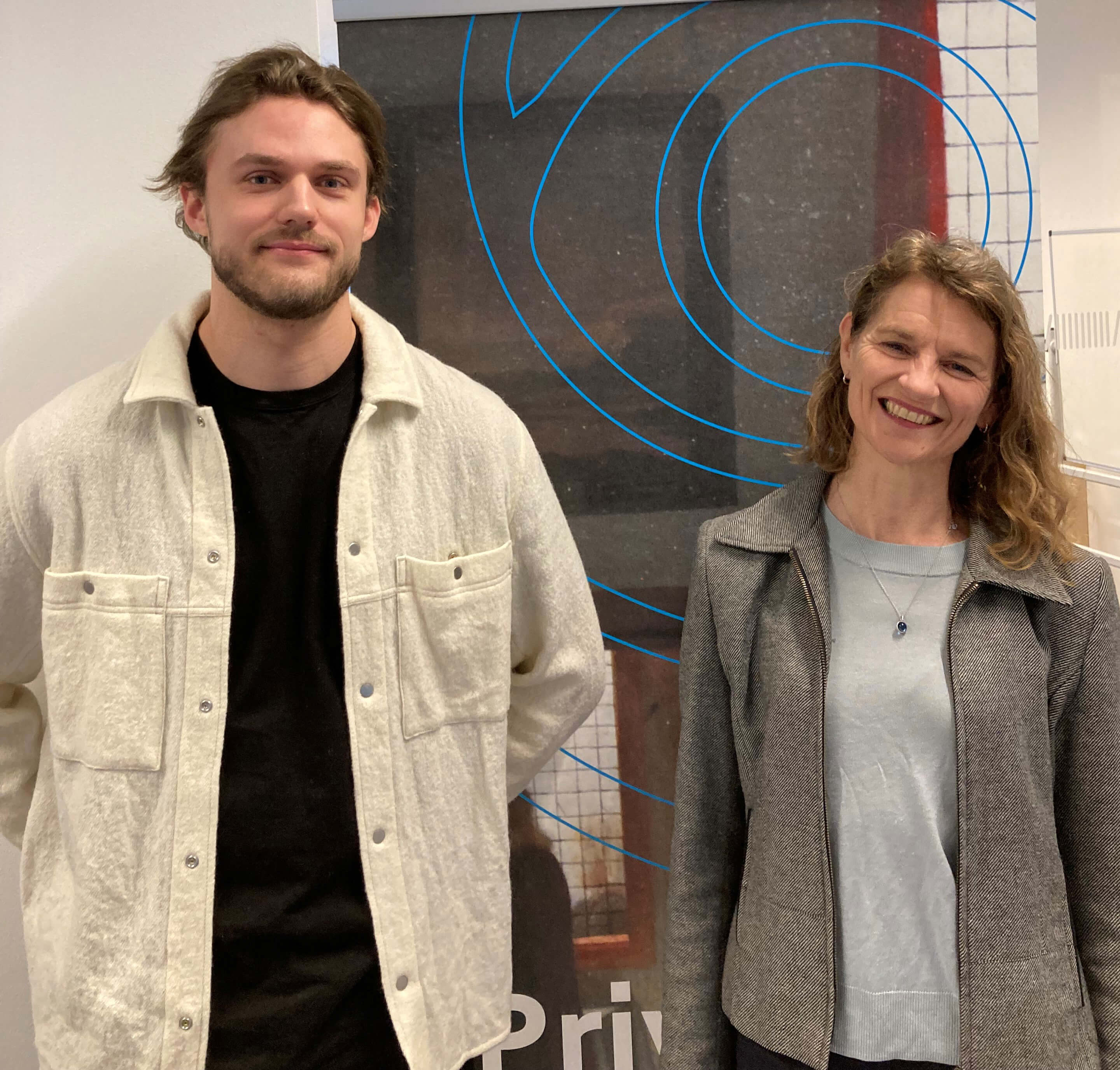WESTIN Award Winner 2021: PRIVACY Summer School Student Alexander Møller-Sørensen
PRIVACY Summer School student Alexander Møller-Sørensen, student at Communication and IT studies, Faculty of Humanities, Copenhagen University, has received the prestigious Westin Scholar Book Award.

The IAPP (The International Association of Privacy Professionals) has created a fund to support students of affiliated educational programmes who are identified by their professors as future leaders in the field of privacy or data protection.
We asked Alexander what this award means to him, and which topic he chose for his Summer School paper:
Some words about yourself and your studies?
I have just finished my 5th semester of Communication and IT studies, and I am now writing my bachelor’s project, which I will hand in this summer. My studies focus on human use of technologies and media in everyday life. I use theories from both sociology and communication in my analysis of the development of modern media.
Personally, I think it is interesting to look into how we use new and emerging technologies and media in our daily life - at home and at work. Therefore, I dream about a career where I can help guide people in their use of the newest technologies. Increasing awareness of how to use these types of media is extremely important, as we are not using the full potential of technology in many sectors. I want to help spread knowledge of the opportunities and limitations of IT, as this is a time where the development of what IT can do is speeding up, yet only a few people understand how the most basic infrastructure in a digital society works.
What is your summer school paper about?
In my project I write about the distance between physical and digital privacy, with a starting point in two completely different areas: architecture and IT. By examining architectural metaphors from the Early Modern Period (16th to 18th century), I look into what the possibilities were for ensuring privacy at the time. This includes hallways, doors and rooms, which are all methods to ensure physical human privacy. The second part of my project compares this depiction of privacy to the average modern citizen’s depiction of data privacy. In an age of increasing digitalization, our ability to actively seek privacy has become more difficult.
I argue that there is a greater threat to privacy today, no matter who you are. We have lost control of the ability to control physical local privacy, information privacy and our freedom of choice in relation to privacy. In contrast to the Early Modern Period, the architecture of the internet is not transparent - even though we use terms such as ‘firewall’ and ‘passwords’ in place of walls and locks. With this in mind, I investigate the possibilities of developing new perspectives on privacy by looking into history. The notion of privacy is not an invention of the modern era, it has just changed form.
How did you come up with this idea for your project?
I am fascinated by Robin Evans’ coupling of architecture and social structures, in particular regarding privacy. This approach felt like the natural choice for me. Furthermore, I was aware from the beginning that privacy and IT are closely connected. Therefore, I wanted to expand my knowledge on the matter by looking at the topic from a historical perspective. By using architecture as an analytical tool, as well as the Three Dimensions of Privacy by Beate Roessler and The Center for Privacy Studies’ hermeneutical spiral, I find it possible to view privacy in a new way, and solve some of the outstanding problems facing the field of Privacy Studies. One example of such a problem relates to the choice between sharing data or not – freedom of choice is offered, but it is at the same time a huge disadvantage in a modern society to go offline.
Which new insights has the PRIVACY Summer School given you?
It was an eye-opening experience to learn how the notion of privacy can be traced back to the Early Modern period across disciplines and cultures. Before this project, I primarily thought of privacy as something relating to the home, or to private details such as your internet search history. The variety of historical perspectives gave me a broader understanding of the concept, which not only focuses on the physical environment, but also includes religion, politics and psychology. In just two weeks, I have worked in more academic fields than I could have possibly imagined. This has taught me about the importance of interdisciplinary academic work, and how it helps with understanding broader connections. I have learnt about many different definitions of privacy, and that it is not as simple as it may sound. Now, I think more about my own conception of privacy, as my work has shown me everyone ought to.
How are you going to use your award?
The award is very helpful, because it will open doors to other certificates and resources that can help me gain an even greater understanding of privacy. I want to work on getting more certificates, so that I can call myself an expert in the field of Privacy Studies. I think it is important to increase general knowledge regarding privacy, as everyone should more actively consider their own privacy. In a world that is becoming more data-based, it is important to be able to guide this development towards an ethical and academically-based endpoint, both among professionals and private individuals. We need more experts to direct both the large international companies as well as the common citizen in the use of the internet to ensure protection of our privacy.
